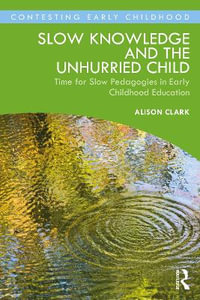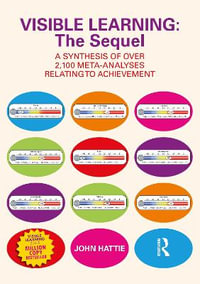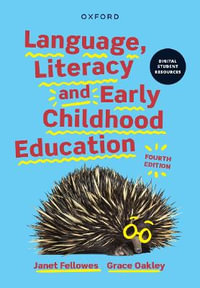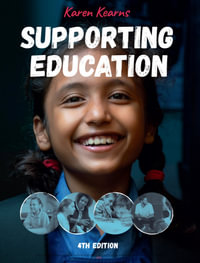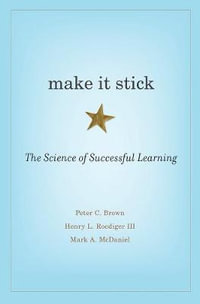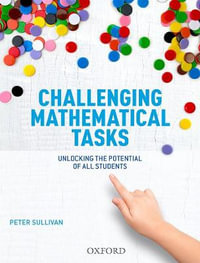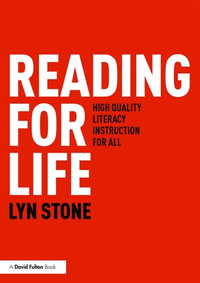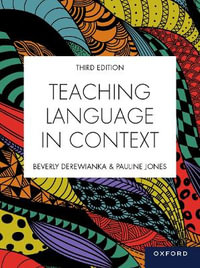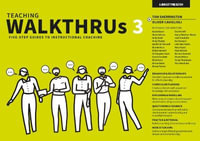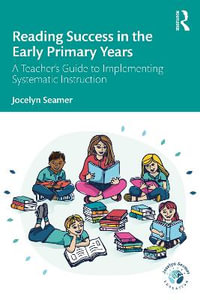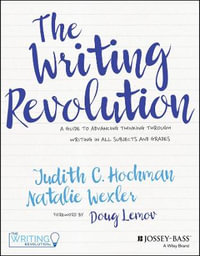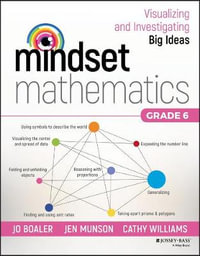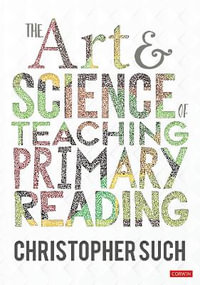An Australian-adapted text that guides teachers to help all Foundation to Year 9 learners make sense of mathematics
Primary and Middle Years Mathematics is designed to support Foundation to Year 9 teachers in implementing research-informed approaches for teaching mathematics. This comprehensive resource aims to enhance teachers' knowledge of effective teaching approaches, encompassing assessment for learning, understanding students' learning processes in mathematics, and addressing common misconceptions. Each chapter refers to the Australian Mathematics Curriculum and presents classroom-ready, hands-on problem-solving tasks specifically designed to challenge students' thinking and foster positive attitudes towards mathematics.
Key features
- Big Ideas lists of key mathematical ideas at the beginning of each chapter help readers envision how to form their lesson plans around major themes rather than isolated skills or concepts.
- Samples of real student work show children's mathematical reasoning in context.
- Hundreds of problem-based activities model specific ways to engage students in doing mathematics. Each activity is aligned with the Australian Curriculum.
- Adaptations for students with additional learning needs and EAL/D students offer practical strategies to make activities accessible to all students.
- Blackline Masters, activity pages and teacher resource pages are provided to support the problems and activities in the book. These are highlighted in the text and can be downloaded.
- Formative assessment notes help educators evaluate students' understanding of content areas and offer the best methods to assist struggling students.
- Technology notes throughout the text reference open-source software, apps and digital resources to use in teaching.
- Writing to learn exercises ask readers to analyse and reflect on each chapter's big ideas.
- For discussion and exploration questions ask readers to explore an issue related to that chapter's content, and are designed to stimulate thought and cause spirited conversations.
- Literature connections list fun ways to use children's books to teach mathematics.
- Recommended readings provide an annotated list of articles and texts to augment the information found in the chapter.
New to this edition
- Updates for the new Australian Curriculum 9.0
The Mathematics Learning Area of AC 9.0 is significantly different to AC 8.4. It has a simplified structure, and descriptions for year levels, achievement standards, content descriptions and content elaborations have all changed - all with the aim of enriching student learning experiences. This edition explains the 'what' and the 'why' and shows how the content aligns to AC 9.0.
- Technology notes integrated throughout
Digital Literacy is one of the seven General Capabilities of the Australian Curriculum and should be integrated into the classroom rather than treated as a separate topic. This new edition infuses discussion of technology ideas and resources throughout the text, where relevant, to help student teachers achieve this goal. ·
- Alignment to Australian Institute for Teaching and School Leadership (AITSL) Standards
Student teachers and their teachers need to demonstrate that they are working towards and to the AITSL Standards. Learning Objectives are now tagged to the relevant Standards, making it easy for students to demonstrate that they are meeting this requirement. ·
- Diversity, equity & inclusion review
All chapters have been reviewed from a DE&I perspective, including Aboriginal and Torres Strait Islander perspectives, and impacts of COVID-19 and lockdowns on learners and educators.
About the Authors
The late Dr John A. Van de Walle was a professor emeritus at Virginia Commonwealth University. He was a leader in mathematics education who regularly gave professional development workshops for K-8 teachers in the United States and Canada focused on mathematics instruction that engaged students in mathematical reasoning and problem solving. Dr. Karen S. Karp is a professor at John Hopkins University (Maryland). Previously, she was a professor of mathematics education at the University of Louisville for more than twenty years. Prior to entering the field of teacher education, she was an elementary school teacher in New York.
Dr. Jennifer Bay-Williams is a professor at the University of Louisville. She is a leader in mathematics education, regularly working to support mathematics instruction. Amy Brass is currently a doctoral candidate in mathematics education at Pennsylvania State University. She was previously a mathematics education lecturer at the University of Melbourne Graduate School of Education and also taught mathematics content and mathematics pedagogy classes at Arizona State University and the University of Cincinnati.
Dr Sharyn Livy is a Senior Lecturer of mathematics education in the School of Curriculum, Teaching and Inclusive Education, Faculty of Education, Monash University. Sharyn enjoys supporting both primary school teachers and pre-service teachers to enhance their skills and knowledge of best practices in mathematics education for primary school children.




